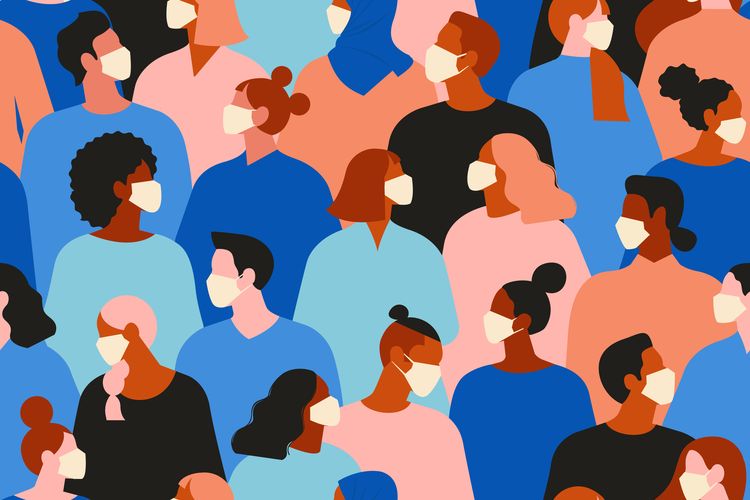UNAIR NEWS – Lately, herd immunity or group immunity has become one of the top searches on Google search engine. It is related to Covid-19 pandemic which is getting worse every day, especially in Indonesia as of Thursday, May 21, 2020 there were 20,162 confirmed cases.
The World Health Organization (WHO) has previously warned that the herd immunity theory is very dangerous as a strategy to overcome the Covid-19 pandemic. In this regard, Laura Navika Yamani, S.Si., M.Si. Ph.D., lecturer of epidemiology at Faculty of Public Health, Universitas Airlangga (FKM UNAIR) gave an explanation.
According to Laura, herd immunity is community or group immunity that can be achieved when the level of community immunity is high.
“The concept of herd immunity is best used in the practice of vaccination. When a population mostly vaccinated it means that it can protect minority groups that are not vaccinated, “Laura said.
The vaccination coverage, she continued, depends on the level of infectious or infectious disease known as reproduction number (R0). The higher the transmission over R0, the vaccination coverage must also be high.
Laura said, for the Covid-19 case, R0 had reached two to four. It means 1 person infected can transmit the disease to two to four people. “So reaching for herd immunity should be when around 50 percent of people get the Covid-19 vaccine,” she explained.
It’s just that herd immunity’s meaning is now expanding, where people are left exposed naturally to Covid-19 to form individual immunity to obtain a level of herd immunity.
According to Laura, if Indonesia, with a population of 270 million, applied the concept of herd immunity, not through vaccination but by allowing them to be exposed naturally. Then there must be about 50 percent of people who are naturally infected or sick with Covid-19, which is around 135 million people.
By following global data, around 30 percent or 40 million more people need special treatment, including medical workers, isolation rooms, ventilators, Indonesia must have these facilities.
“If not, the death rate will be high because these patients are not treated. If we can reduce the spread, in fact to reduce the burden on medical personnel and facilities needed and the number of death cases can be reduced,” she said.
Therefore, Indonesia is still on track to make efforts to prevent the spread by implementing a policy that has been taken, Large-Scale Social Distancing (PSBB). In addition, monitoring and evaluating its implementation provides outcomes in accordance with indicators of success to be achieved.
“The point is the policy taken to limit the movement of people and is supported by the policy of applying health protocols by the public. These interventions are expected to break the chain of transmission of Covid-19. It also accelerates the 3T process carried out, test, treat, and tracing, so that positive cases can be isolated immediately and do not become a source of widespread transmission, ” she concluded. (*)
Author: Asthesia Dhea Cantika
Editor : Binti Q. Masruroh





